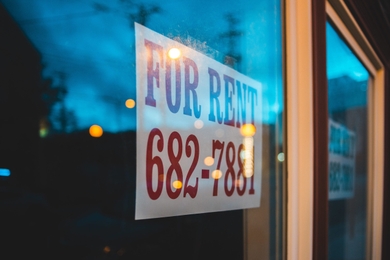How Much Dwelling Coverage Do I Need: Condo Insurance | Gabi

Condo units are gaining popularity when it comes to housing choices in America. As a result, there’s a growing need for HO6 insurance. You may be wondering how much coverage you should purchase to be protected in case of unexpected events. One of the most important policies when it comes to condo insurance policy is dwelling coverage. Here’s what you need to know about condo dwelling coverage:
What’s Covered By a Condo Association’s Insurance Policy?
Do I Need Dwelling Coverage For a Condo?
How to Estimate the Amount of Dwelling Coverage That You Need?
Revising Your Dwelling Coverage
What is Covered by Dwelling Insurance?
What is Not Covered by Dwelling Insurance?
What’s Covered By a Condo Association’s Insurance Policy?
First, you need to determine the type of condo association’s master policy you have and check if it protects your personal property. It’ll help you assess how much dwelling coverage you should opt for. What is a master policy? It’s the condo association’s insurance, which protects the spaces outside of the building, the stairs or elevators, picnic area, and other common areas.
There are two main types of HOA master insurance policies:
- All-in master policy – also referred to as ‘All inclusive’, protects both interior and exterior surfaces of your condo. It doesn’t provide coverage for your personal property, though (such as furniture, clothes, etc).
- Bare walls in master policy – the least protective type, it covers only the bare structure of your condominium (the exterior walls). Coverage for what’s inside (personal property and liability) is upon a condo owner. Meaning you’ll have to pay any damages to your bathroom, belongings, appliances.
- Single entity – this type of policy covers the majority of the condominium structures. Built-in property within is included (walls, floors, fixed appliances). However, it doesn’t provide protection for any adjustments or improvements. If that’s the type of your master policy, you’ll have to purchase personal property coverage (and building property coverage, provided that you made extensive adjustments to your condo unit).
You also need to know the limits of your HOA master policy. It may be required that you purchase additional coverage to make sure your policy covers your condominium and you from unexpected and big spendings. Feel free to contact one of our licensed Gabi advisors for more information on coverage limits, average costs, and deductibles.
Do I Need Dwelling Coverage For a Condo and How Much?
Yes, you do. Dwelling coverage is the type of insurance that protects your condo’s interior from the damage caused by a covered loss. If your master policy is an “all in” type, you may opt for less dwelling coverage. But if it’s “bare walls” in type, you need more dwelling (building property coverage). It has to cover the cost of replacing or repairing all of the improvements and permanent fixtures attached to the surfaces (like floors, tiles, walls, etc.).
How to Estimate the Amount of Dwelling Coverage That You Need?
You know the type of your HOA’s master policy, now what? You should estimate the costs you would bear in case your apartment needs to be redecorated or replaced after an unexpected accident or event, along with labor costs. Your dwelling coverage limit will be the exact replacement amount that you’ll receive. You can ask a specialist for an estimate (such as an architect) or compare the cost per square foot from similar units. However, make sure that the monthly premium won’t be too much of a burden for your budget.
Also, you may be required to purchase a certain amount of condo dwelling coverage by your mortgage lender, since it is in their interest to make sure your property is covered.
What Do You Need to Cover?
Along with the dwelling insurance policy, you need to consider the following coverages:
- Personal possessions
- Loss of use
- Medical payments
- Liability protection
- Real personal property
- Flood insurance
Real Personal Property
You need extensive Real Personal Property coverage when your master policy is a “bare walls in” type. If your HOA’s insurance is more comprehensive, you may need to purchase RPP coverage to cover the discrepancy between the standard policy and any alterations or renovations that you made. Make a list of all appliances (such as kitchen appliances and lightning) and upgrades in your condo to see how much RPP coverage you should opt for.
Liability Coverage
Liability protection is not closely related to your condominium. It provides protection if you or your family members are sued for bodily injury or property damage.
Liability insurance protection extends beyond the walls of your condo, as long as no vehicle was involved (you need separate car insurance for that). An unforeseen accident may result in hefty fees so it’s wise to add liability insurance to your condo policy limits.
Loss of Use (Additional Living Expenses)
If your condo unit is uninhabitable or damaged and you are forced to leave it for a while, loss of use coverage will cover the costs of food and hotel (within reasonable limits). The amount of this coverage depends on your personal situation, so you need to determine it with your insurer.
Personal Possessions
To assess the sufficient amount of coverage for that section, prepare an inventory of your personal belongings (here’s how to do that). Include your clothing, jewelry, furniture, electronics, works of art, and collectibles.
Your personal possessions should be enough to cover the replacement amount in case of total loss. Do you possess any expensive items, such as jewelry? If yes, you may need additional coverage in the form of a separate insurance policy like jewelry insurance.
After creating an inventory, you have to answer an important question – do you want an actual value or replacement value type of policy? If you opt for an actual cash value, your policy will reimburse you for your items’ current worth, whereas replacement cost coverage provides a payout which equals buying a new version of the same thing.
An actual cash value policy would be cheaper, but if you need to replace your personal possessions due to a covered peril, you will have to pay more out of your pocket.
Medical Payments
A type of coverage that will protect you in the event of injuries or incidents that happen to a visitor within your property.
You have to ensure that you have a sufficient amount of coverage since medical bills can be very expensive.
Revising Your Dwelling Coverage
You should revise your dwelling coverage from time to time (once a year or more often) and update the per square footage estimate. Your limits may need to be changed due to different material and labor costs and shifts in real estate values. If you make any adjustments or renovations to your condo, this will also affect your need for dwelling coverage. You can get assistance from an insurance company to check if your condominium gets sufficient coverage limits.
What is Covered by Dwelling Insurance?
Dwelling coverage covers you in case of damage caused by certain covered losses:
- Fire
- Vandalism
- Theft
- Hail
- Windstorm
- Falling trees
- Lightning
- Tornadoes
- Weight of ice/snow
- Sudden water damage
What is Not Covered by Dwelling Insurance?
Here’s what’s not covered by dwelling insurance:
- Flooding (you’ll need separate flood insurance for that)
- Earthquake (you have to purchase a separate insurance policy)
- Pests
- Damages due to neglect
- Mudslides
- Sinkholes
- Car (HO-6 policy won’t protect your vehicle, you need to buy auto insurance for that)
As a condo unit owner or occupier, you need to make sure you get the right amount of dwelling coverage. Buying the right amount of dwelling coverage will protect you from bearing unexpected costs that will be hard on your budget. Make sure to assess the value of your personal property and determine the type of your condo association’s master policy. However, you don’t need to do it all by yourself – let Gabi do the legwork for you! Sign up here and get a free quote with sufficient coverage limits along with assistance from our licensed insurance agents!









